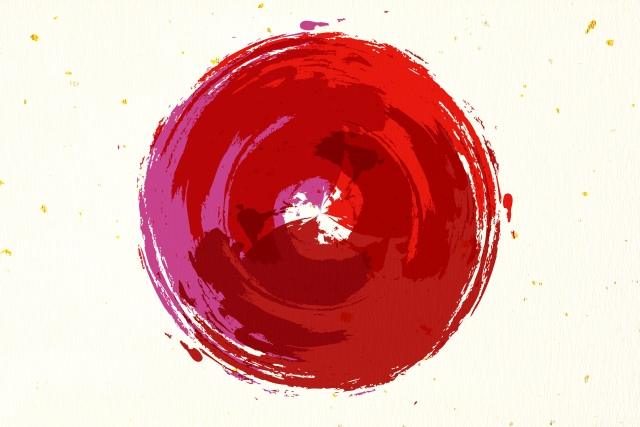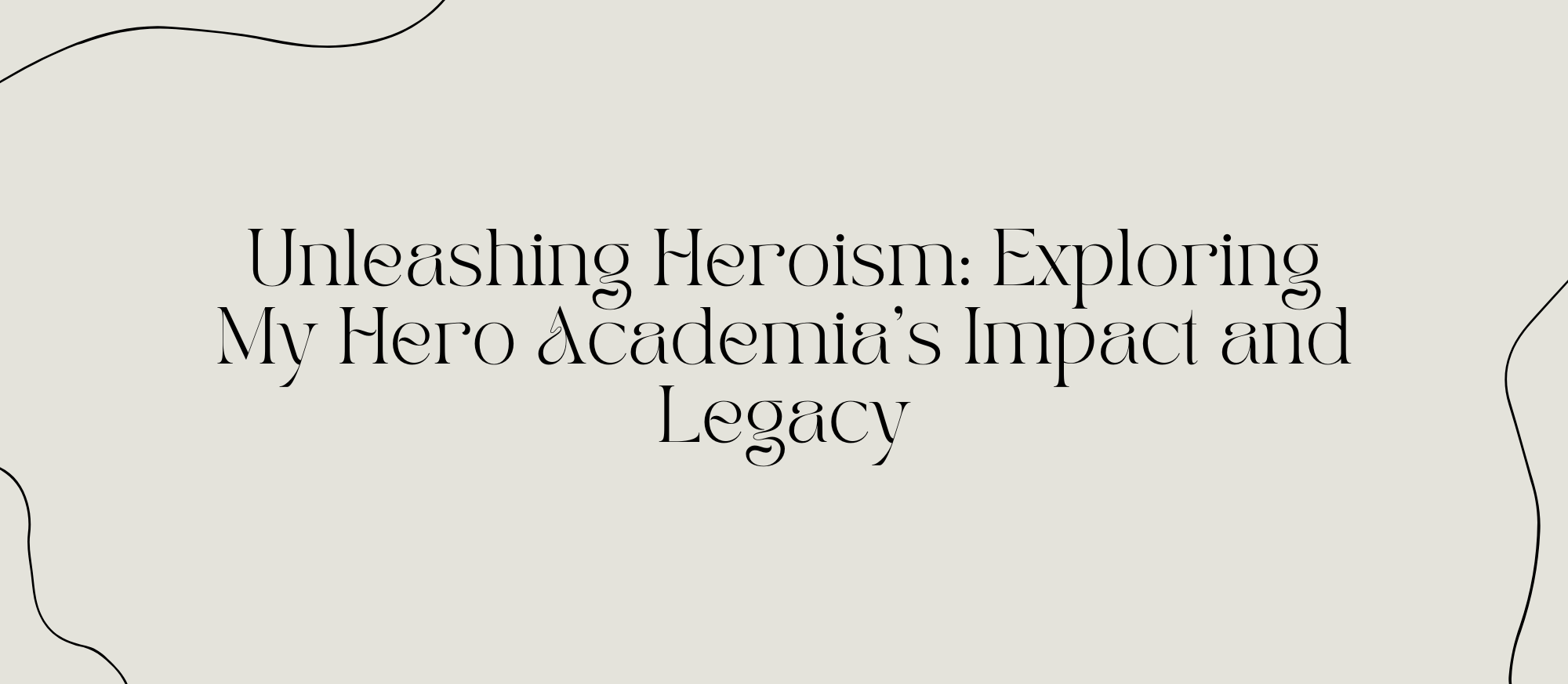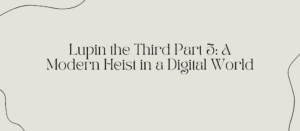Introduction

Welcome to the thrilling world of “My Hero Academia,” a masterpiece brought to life by the talented Kohei Horikoshi. This groundbreaking series catapults us into a dynamic universe where the lines between heroes and villains blur, all centered around a unique high school dedicated to nurturing the next generation of superheroes.
Imagine a world where superpowers, known as “Quirks,” are the norm, and becoming a hero is the dream of almost every child. At the heart of this world lies U.A. High School, the premier institution for aspiring heroes, where our protagonist, Izuku Midoriya, steps into his destiny, despite being born without a Quirk.
“My Hero Academia” isn’t just a manga. It’s a global phenomenon, adapted into an internationally acclaimed anime series, captivating movies, and an array of merchandise that fans around the world cherish. This cultural titan has not only dominated the charts but also won hearts, making it a staple in both the conversation around modern anime and broader pop culture discussions.
Stay tuned as we dive deeper into the characters, themes, and the indelible mark “My Hero Academia” has left on the entertainment landscape. Join us as we explore how Midoriya and his classmates navigate challenges, form alliances, and grow not just as heroes, but as individuals in a world that’s as complex as it is colorful.
Character Development and Analysis

Dive deep into the heart of “My Hero Academia” by exploring the compelling backstories and motivations of its standout characters. This analysis offers an intimate look at heroes who are not just powerful but profoundly human in their struggles and triumphs.
Izuku Midoriya stands at the center of this dynamic narrative, a character without inherent powers in a world where superpowers define your worth. His relentless determination and inherent sense of justice make him the perfect underdog hero. Midoriya’s journey from a Quirkless student to the protégé of the greatest hero, All Might, underscores the series’ theme of perseverance and the belief that a hero is made by courage, not by power alone.
All Might, the symbol of peace, serves as more than just a mentor; he is a beacon of hope and strength. His decline in power juxtaposed with his unwavering spirit offers a poignant commentary on heroism’s transient nature and the weight of legacy.
Katsuki Bakugo’s explosive power and fiery temper contrast deeply with Midoriya’s calm determination. Bakugo’s complex relationship with Midoriya adds layers to his character, evolving from a bully to a rival and, eventually, a comrade. His journey highlights themes of redemption and the importance of channeling one’s strengths constructively.
Shoto Todoroki brings a story of familial strife and self-acceptance. His struggle to embrace his ice and fire powers, representing his torn family dynamics, encapsulates the series’ exploration of personal identity versus familial expectations.
These characters are more than their Quirks; they are reflections of the human spirit. Their personal battles, victories, and growth not only advance the plot but also enrich the overarching narrative, making “My Hero Academia” a resonant story about the essence of heroism. Through them, the series invites viewers to question what it truly means to be a hero, making each episode a study in character-driven storytelling that resonates with a diverse global audience.
Themes and Symbolism

“My Hero Academia” delves into the profound exploration of heroism, justice, and personal growth, using its vibrant narrative to challenge and redefine the meaning of being a hero in the modern world. This article examines how these themes resonate deeply within the framework of today’s societal issues and the personal journeys of its characters.
The theme of heroism is central, posing critical questions about what it truly means to be a hero. Beyond the spectacle of heroic feats, the series invites viewers to consider the responsibilities and burdens that come with such a role. It scrutinizes the idea of altruism in heroics, prompting a reflection on whether actions are driven by a desire to help others or by the pursuit of personal glory or redemption.
Justice in “My Hero Academia” is portrayed as a multifaceted concept. The show presents a world where the lines between right and wrong are often blurred, pushing characters like Izuku Midoriya and his classmates to navigate complex moral landscapes. This exploration is critical as it mirrors our own world’s struggles with justice, where laws and norms are continually in flux.
Personal growth is another pivotal theme, illustrated through the characters’ development as they confront their limitations and past traumas. For example, Shoto Todoroki’s journey of coming to terms with his family history and embracing all aspects of his powers symbolizes the struggle of accepting oneself and overcoming inherited burdens.
The series also tackles the issue of heroism in the modern world by showing how media and public perception shape the roles and expectations of heroes. It addresses the pressures of living up to a societal ideal and the impact this has on the heroes’ psychological well-being, thus drawing a parallel with real-world celebrities and public figures.
Through its engaging plot and complex characters, “My Hero Academia” offers a compelling commentary on societal issues, making it not just a story about heroes in training, but a reflective mirror on the challenges of aspiring to do good in an imperfect world. The series succeeds in making these heavy themes accessible and relatable through its masterful blend of action, emotion, and humor, resonating with a broad audience worldwide.
Cultural Impact and Global Reception

“My Hero Academia” has emerged as a formidable influence in pop culture, not only in its home country of Japan but also across the globe. This analysis delves into the series’ profound impact on the superhero and anime genres and explores its reception among both audiences and critics worldwide.
Global Appeal: “My Hero Academia” resonates universally, capturing the essence of heroism through a diverse cast of characters and emotionally charged storylines. Its global success can be attributed to its universal themes such as courage, justice, and growth, which transcend cultural barriers. The series has sparked a dedicated international fanbase, evident from its widespread discussion on social media, fan-created content, and packed panels at comic cons worldwide.
Cultural Resonance in Japan: In Japan, “My Hero Academia” has revitalized the superhero genre by integrating traditional shonen elements with a modern superhero narrative. The series has become a cultural phenomenon, influencing various forms of media and merchandise, from action figures and clothing to video games, demonstrating its pervasive impact on Japanese pop culture.
Critical Acclaim: Critics have praised “My Hero Academia” for its innovative approach to the superhero narrative, complex character development, and its ability to maintain suspense and emotional depth throughout the series. It has been lauded for its dynamic animation style and meticulous attention to detail, which bring its intense battles and poignant moments to life.
Contribution to the Anime Genre: “My Hero Academia” stands out in the anime genre by offering a fresh take on the concept of superpowers and heroism. Its approach to addressing real-world issues through a superhero lens has not only broadened the appeal of anime but has also brought new audiences to the genre.
Impact on the Superhero Narrative: By exploring the responsibilities and ethical dilemmas faced by heroes, “My Hero Academia” contributes a nuanced perspective to the superhero narrative. It challenges traditional notions of heroism and villainy, making it a significant reference point in discussions about the evolution of superhero stories in contemporary media.
In conclusion, “My Hero Academia” is more than just an anime; it is a cultural force that continues to inspire and entertain people around the world. Its ability to weave complex themes into an engaging narrative makes it a pivotal series in both the superhero genre and the broader scope of global entertainment.
Future Prospects and Upcoming Developments

As “My Hero Academia” continues to captivate audiences worldwide, the series stands on the cusp of exciting new expansions, including upcoming seasons, anticipated movie releases, and potential spin-offs. This overview explores what fans might expect from the future of this beloved superhero saga.
Upcoming Seasons and Developments: Following the dramatic conclusions of the recent season, “My Hero Academia” is set to delve deeper into the complexities of its characters and their journeys. With the manga still unfolding, upcoming seasons promise to bring pivotal arcs to the screen, potentially exploring darker themes and greater challenges for Izuku Midoriya and his classmates.
Anticipated Movie Releases: The success of previous films has set the stage for future feature-length installments that could explore side stories or pivotal events from the manga that haven’t been fully addressed in the TV series. These movies are likely to continue blending intense action with deep emotional narratives, providing a cinematic complement to the series’ storyline.
Potential Spin-Offs: Given the richly developed world and the extensive cast of characters, there is substantial material for potential spin-offs. These could focus on lesser-explored characters or earlier eras within the “My Hero Academia” universe, providing fresh perspectives and deeper lore.
Speculation on Future Directions: Based on current manga developments and emerging fan theories, the series may continue to explore the implications of hero society and the true nature of heroism. The evolving dynamics between the characters, especially with the shifting alliances and ideologies, suggest a series that could increasingly question the black-and-white morality traditionally associated with superhero narratives.
Fan Theories and Community Engagement: The active online community continues to speculate on future plot developments, with theories ranging from the rise of new villains to unexpected twists in character arcs. This engagement not only enriches the viewing experience but also influences discussions around the series’ direction.
As “My Hero Academia” advances, it remains a seminal work in the anime genre, poised to expand its influence and legacy through innovative storytelling and profound character development. Fans and newcomers alike have much to look forward to as this dynamic series continues to evolve.








